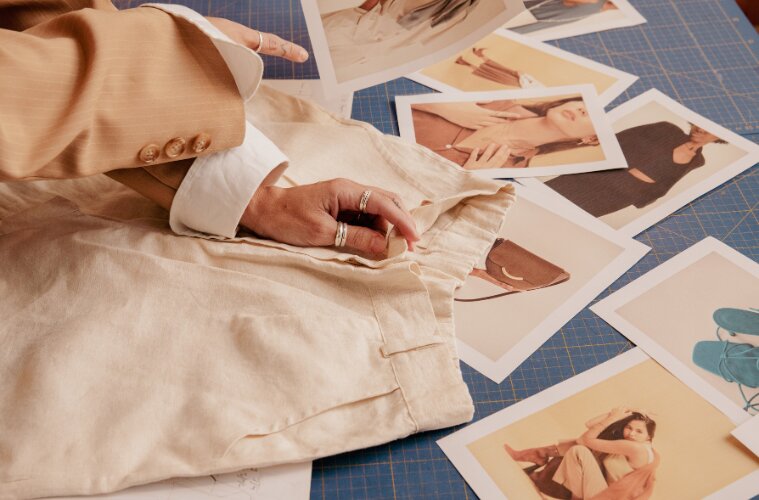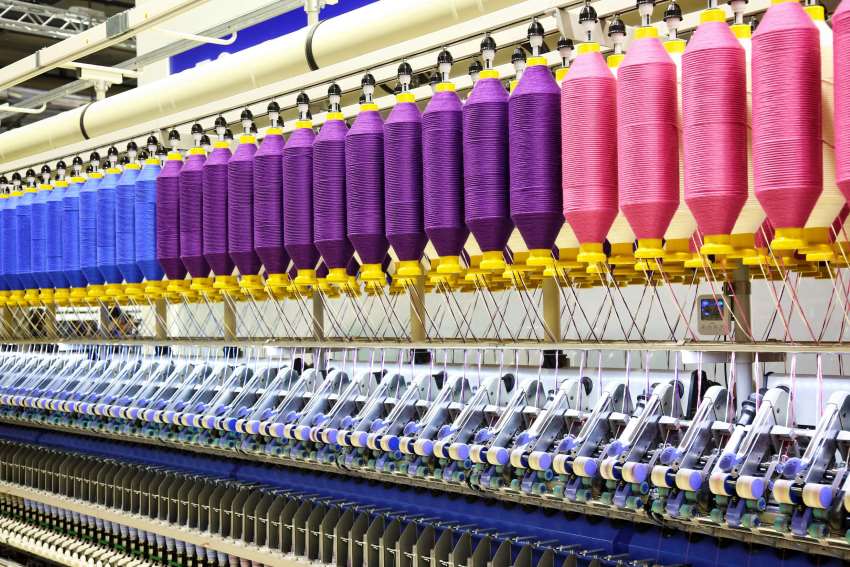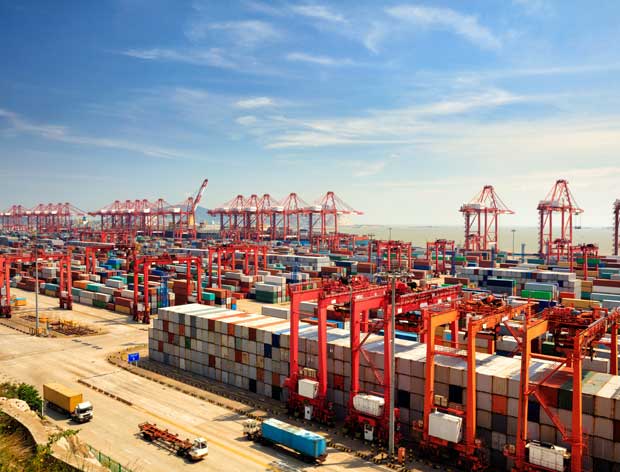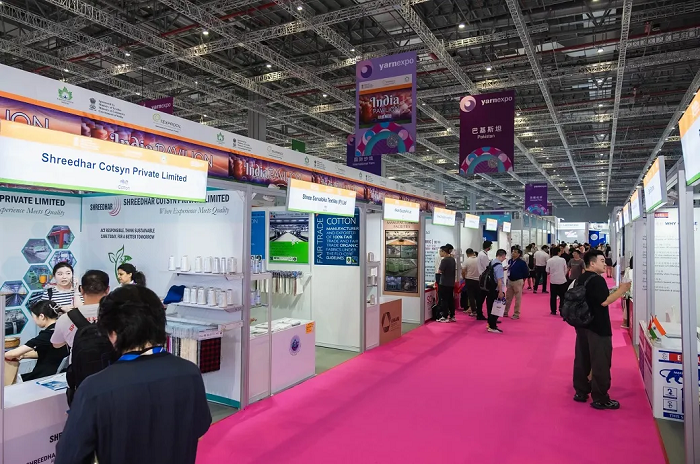FW
The knowledge segments at the upcoming Home Textiles Sourcing Expo will focus on the global home textiles landscape, colour trends for Autumn/Winter 2019-20 and a unique panel on translating fashion trends into home décor. The expo will be held alongside Texworld USA and Apparel Sourcing USA offering a wide variety of seminars and panels. As a marketplace for networking, education and sourcing, it is the only trade event in North America to centre entirely on home textiles and finished soft goods for all home applications.
Seminars at the expo include a session dedicated to sheets, towels, tariffs and trade: what it all means for the global home textiles market in 2018 and beyond. The expo panels feature two sessions. Translating Fashion Trend to Décor with Staying Power will be presented by Jana Platina Phipps. Many couture fashion trends have the chance of looking absurd in home design. However, many of the innovative fabrications, textiles, embellishments and color palettes seen on the runway serve as great indicators and inspiration for what will trickle down to decor in surprising ways. Embellishment expert and design blogger Jana Platina Phipps, known as Trim Queen, will invite participants on a fast-paced visual tour through what's "haute" and which trends can be integrated right into the home market.
A panel titled ‘The New Home Textiles Landscape - What’s Needed to Survive and Thrive Tomorrow’ will discuss burning issues of interest to importers, product developers, marketers, sources, and creatives. A panel of experts will present exclusive research about consumer shopping behaviors, trend forecasts that address changing consumer’s lifestyles, and insight from a retail disruptor about the new landscape.
Twine Solutions has announced Delta Galil Industries, a global manufacturer and marketer of branded and private label apparel, as its first beta customer for proprietary Digital Selective Thread Dyeing System and Solutions. The system will be used to support Delta's goals in developing new fabrics, products, finishing technologies and marketing concepts.
Delta Galil leads the industry in technological innovation in textile manufacturing, products and design hence, Twine's Digital Selective Treatment (DST) technology is the right match in to Delta's mission in evolving and innovating with high impact emphasis on the environment.
Delta Galil will join forces and collaborate with Twine which will enable Delta to produce the most updated digital solutions for textiles, making sure they continue to be the market leaders in their field. Delta Galil is dependent on leading apparel designers and retailers worldwide to help them introduce new products and innovative manufacturing solutions that answer consumer demands and help grow their market share, commented Gil Shimon, President of Global Upper Market at DGI.
Twine Solutions was founded in 2015 in Israel. Twine’s system continuously dyes a single raw or off-the-shelf thread to any requested length and in any colour, with a choice of millions of colours, shades, as well as colour gradients. Delta is a high quality apparel global leader that focuses continuously on quality, design and innovation. The companys are thrilled that they have embraced twine's cutting-edge technology, together they would revolutionise the thread, fabric and garment industries.
A meeting of the leaders of the Uztekstilprom Association with Chinese Ambassador to Uzbekistan Jiang Yak noted Chinese investments into Uzbekistan’s textile industry has been on the rise increase. Investments now exceed $ 200 million.
They discussed issues of development of cooperation between Uzbek and Chinese textile associations, large textile companies, expansion of investment activities of Chinese companies in Uzbekistan, increase in trade turnover between the countries, in particular, consideration of the issue of optimization of rates of customs duties on the import of Uzbek textiles to China were discussed. Particular emphasis was placed on the development of the Chinese government's technical assistance program aimed at training and upgrading skills of young specialists for the textile, clothing and knitting industries.
Also, the Chinese side invited representatives of the textile industry of Uzbekistan to participate in the upcoming International Exhibition “Expo China 2018” to be held in November. In its turn, the Association invited Chinese companies to take part in the International Exhibition of Textile and Fashion Industry “UzTextile Expo 2018” and the international conference “Uzbekistan Textile Conference,” which will be held in Tashkent from September 4-7, 2018.
"CHIC, China International Fashion Fair would present around 800 exhibitors in an exhibition space of approx 50,000 sq. mt. in two halls from September 27 to 29, 2018 at the National Exhibition & Convention Center, Shanghai. The current conditions for international fashion companies in the Chinese market offer significant improvements for international brands. Import tariffs will be lowered from 15.9 per cent to 7.1 per cent to promote import and upgrade the industry. This edition's motto is ‘New Makers’, with this, Asia's leading fashion fair is picking up on the latest changes in the Chinese fashion market and providing the essential tools for the Chinese market. The new, young design of the fair, launched in March this year at CHIC, is being expanded."
 CHIC, China International Fashion Fair would present around 800 exhibitors in an exhibition space of approx 50,000 sq. mt. in two halls from September 27 to 29, 2018 at the National Exhibition & Convention Center, Shanghai. The current conditions for international fashion companies in the Chinese market offer significant improvements for international brands. Import tariffs will be lowered from 15.9 per cent to 7.1 per cent to promote import and upgrade the industry. This edition's motto is ‘New Makers’, with this, Asia's leading fashion fair is picking up on the latest changes in the Chinese fashion market and providing the essential tools for the Chinese market. The new, young design of the fair, launched in March this year at CHIC, is being expanded.
CHIC, China International Fashion Fair would present around 800 exhibitors in an exhibition space of approx 50,000 sq. mt. in two halls from September 27 to 29, 2018 at the National Exhibition & Convention Center, Shanghai. The current conditions for international fashion companies in the Chinese market offer significant improvements for international brands. Import tariffs will be lowered from 15.9 per cent to 7.1 per cent to promote import and upgrade the industry. This edition's motto is ‘New Makers’, with this, Asia's leading fashion fair is picking up on the latest changes in the Chinese fashion market and providing the essential tools for the Chinese market. The new, young design of the fair, launched in March this year at CHIC, is being expanded.
Individual sections present the latest trends in Chinese and international fashion market. CHIC connects and brokers partnerships and launches the new generation garment industry, which builds on high-tech strategies and interlinks industrial production with modern information and communication technologies, relying on intelligent, digitally networked systems in self-organised production.
Individual pavilions
Fashion Journey puts the focus on international exhibitors. In addition to the large Italian pavilion, the French pavilion ‘Paris Forever’ and the Korean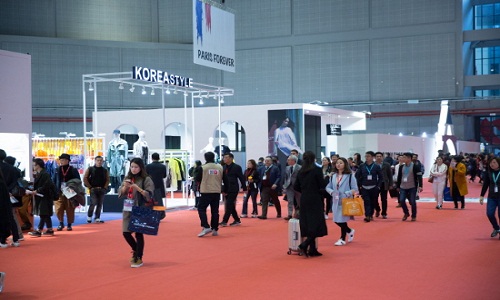 show-in-show ‘Preview in China’, individual participants from Poland, the UK, France, Italy, Spain, Japan and the USA use CHIC as a bridge in the Chinese market. Impulses, CHIC’s designer section, features emerging designer brands such as Junne, Hua Mu Shen, King Ping, Anjaylia, Mao Mart homme, Tuffcan, etc.
show-in-show ‘Preview in China’, individual participants from Poland, the UK, France, Italy, Spain, Japan and the USA use CHIC as a bridge in the Chinese market. Impulses, CHIC’s designer section, features emerging designer brands such as Junne, Hua Mu Shen, King Ping, Anjaylia, Mao Mart homme, Tuffcan, etc.
The Sustainability Zone, first showcased at CHIC in Fall 2017, is receiving greater emphasis due to increasing environmental and health awareness of Chinese consumers, featuring sustainable supply chain solutions, sustainable innovation and sustainable fashion collections. The womenswear section New Look of CHIC presents next to leading Chinese brands like Avrala, and CMH also international brands like Saint James from France, Esisto from Germany, Trenz Eight from Canada or PN JONE, USA. Beside the suppliers of classic menswear, Urban View, the menswear section, also includes casualwear brands like NRDMA and Supin as well as bespoke companies like H. Pin& Tack, Jin Yuan Yang, Fa Lan Qian Mu, Long Sheng and Dandinghe. CHIC Young Blood shows young lifestyle brands, Kid’s Paradise offers e.g the largest fashion group in China for children’s fashion Xtep Kids. Future Link gathers fashion service providers for among others supply chain solutions, smart retail and smart production, RFID, laser technology and data utilisation.
Visitor management
VIP match making activities at the fair, will take place especially for selected international brands that will have the opportunity to present themselves and make relevant contacts in Chinese trade. Meetings are organised among others with multi brand stores and buyers such as The Fashion Door, Dong Liang, Jing Dong, VIP Shop and department stores, and retailers such as Carrefour, Amazon, Decathlon, Wang Fujing, etc. An important tool for CHIC visitor marketing is social media; for this special programmes are run, in which individual brands are presented to prospective visitors. CHIC is visited by representatives of all distribution channels for distribution in the Chinese market, at the last event in autumn 2017 more than 65,722 visitors from all over China and other nations were registered at the CHIC, with a significant increase in multi brand stores.
Seminars and shows
The future of fashion business in China will be discussed with a panel of experts as a part of CHIC Talks. A trend seminar from WGSN for F/W 2019 and a workshop on bags and shoes production from the Moda Pelle Academy are lined up. CHIC shows provide an overview of selected international brands. CHIC is organised by Beijing Fashion Expo, and China World Exhibitions, supported by China National Garment Association, The Sub-Council of Textile Industry (CCPIT) and China World Trade Center.
Seduno (Myanmar) Fashion Co in Hlaing Tharyar Industrial Zone of Myanmar that recently announced it was facing difficulty keeping the business running because of failure in production, postponements in exports, an increase in operating costs, and day-to-day wage costs. The unit with over 400 workers has now closed down.
According to workers the management did not give them advanced notice that it was ending operation. Ma Khin Pa Pa Hlaing, one of the workers, mentioned that some of them had not received compensation yet and the factory did not compensate all workers because of work experience.
He further added few workers returned to their villages after the closure because they could not pay the rent for the factory dormitory. Additional factories might shut down in the future as the government has not created more job opportunities so far and does not care about labour issue says U Tun Tun Naing, joint secretary of the Cooperating Committee of Trade Unions.
Since the government fixed the minimum wage at K4800 (US$3.40) a day, businesses cautioned they might close because they could not afford the new wage due to a slowdown in the economy and low demand in international market.
The US domestic industry says it is harmed by imports of fine denier polyester staple fiber from China, India, Korea, and Taiwan. The allegations are that exporters from these countries sell fine denier polyester staple fiber in the United States at less than fair value.
The allegations identify a number of significant national and regional programs, including preferential export financing, preferential income tax treatment, tax exemptions, rebates and credits on imports of inputs and capital goods used in the production of fine denier PSF and grants for fine denier PSF producers to assist in the development of export market and to protect against commercial risk.
US Customs and Border Protection may be instructed to collect cash deposits from importers of fine denier polyester staple fiber from China, India, Korea, and Taiwan. In 2017, imports of fine denier polyester staple fiber from China, India, Korea, and Taiwan were valued at an estimated $61.4 million, $23.7 million, $11.9 million, and $7.4 million respectively. Foreign companies that price their products in the US market below the cost of production or below prices in their home markets are subject to anti-dumping duties. China’s dumping margin is alleged to be 88.07 to 103.06 per cent, while that of India is 21.31 to 29.70 per cent.
Higher Education Commission Pakistan has released a grant of Rs 2.84 million to Department of Materials & Testing, National Textile University Faisalabad for upgradation and strengthening the Textile Physical Testing Laboratory under the project "Institutional strengthening" .This will be utilised for procuring three testing instruments, high resolution microscope, elmendorf tear tester, and pneumatic bursting strength tester. The proposed instruments are common for textile physical testing laboratory. Their addition in our laboratory will strengthen the textile testing and research approach for undergraduate and postgraduate students.
High resolution microscope is required to analyse fiber up to yarn and fabric surface characteristics. It will help undergraduate students to learn about fiber physical structure and to distinguish in different fibrous materials. It will enhance their analytical skills to differentiate and study fiber and yarn surface properties. Surface modifications in research perspective will also be studied on these instruments for postgraduate students.
Turkey has agreed to annul the 17 per cent anti-circumvention duty on import of Nepalese yarn. Turkey earlier provided duty-free access to Nepalese yarn. It imposed the duty last year alleging Nepalese traders were exporting foreign yarn under domestic brand names.
Alleging that Nepal was exporting Chinese yarn, Turkey had suspended the generalised system of preferences (GSP) benefit on export of yarn from Nepal in January this year. It had cited a considerable growth in export from Nepal — around 190 per cent between 2011 and 2017 — without a reliable domestic production base as the reason for suspending the facility. Nepal exports polyester and viscose blend yarn worth around four billion Nepali rupees to Turkey every year.
Nepal insists its yarn producers, traders and yarn manufacturers export genuine domestically produced yarn. There are four producers of yarn in Nepal and they jointly produce almost 40,000 metric tons of yarn a year. Annually, the country exports more than 80 per cent of locally produced yarn to several countries.
Nepalese yarn amounting to almost seven billion rupees is exported to Turkey every year. Nepal and Turkey established diplomatic relations in 1962. Among Nepal’s exports to Turkey are carpets, pashmina and shawl, and handicrafts. After the earthquakes which struck Nepal in 2015 Turkey delivered humanitarian assistance and took part in rescue operations.
Canada has hit back at the United States with retaliatory tariffs on American summertime essentials such as Florida orange juice, ketchup and Kentucky bourbon. The tit-for-tat duties are a response to the punishing US steel and aluminum tariffs imposed at the start of June.
Canada says the move has been made with regret and very much in sorrow, not in anger against a close ally. Retaliatory tariffs do great damage to the multilateral trading system. Canadians, however, are overwhelmingly in favor of the retaliation. Escalation into an all-out trade war will be devastating to the Canadian economy, which sends about 75 per cent of its exports to the United States. Canadian patriotism, meanwhile, has flourished under hashtags like #BoycottUSA, #BuyCanadian and #VacationCanada that urge people not to buy American goods and travel packages.
Canada and the US are among the world’s two largest trading partners with an estimated $673.9 billion worth of goods and services exchanged in 2017, with the US scoring a small surplus. The United States also is the top destination for Canadian vacationers, who made 42 million trips to the US in 2017. But relations between these two neighbors have plunged to their lowest in decades.
The 11-member Trans-Pacific Partnership trade pact is preparing for its next stage of expansion. Japan and Mexico have ratified the pact. The Asia free trade bloc now needs four more member states to complete similar procedures to kick the process into next stage. TPP-11 takes effect 60 days after six of its 11 members ratify the pact.
Among the current members, Canada, New Zealand and Australia have taken steps toward ratification. Singapore and Chile aim to approve the deal by the end of year. The other members are Peru, Vietnam, Brunei and Malaysia. Thailand, Colombia, Indonesia and the UK have expressed interest in joining. Indonesia feels that not joining the pact risks harming the competitiveness of exports from southeast Asia’s largest economy. The US withdrew from the original TPP deal in January 2017.
TPP-11 is poised to create a free trade zone covering 13 per cent of the global gross domestic product and 15 per cent of global trade by value. GDP in the 10 members other than Japan is set to grow more than six per cent annually through 2023. Clear, unified rules on investment in the pact will greatly expand business opportunities in the economic bloc, which would trail only the US, China and the European Union in size.




